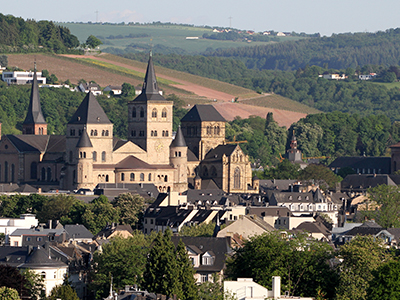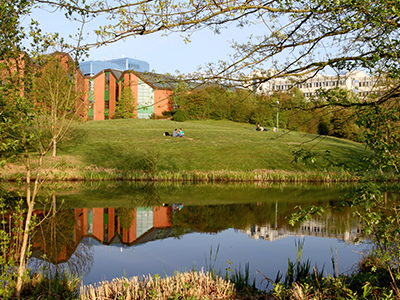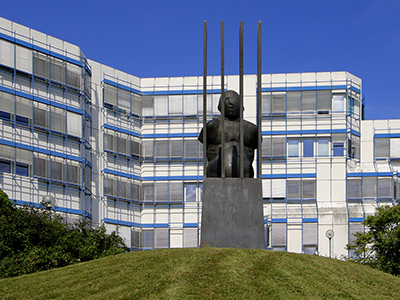With its 15,000 students (including more than 10 percent international students), Universität Trier embraces contrast: young, yet true to tradition; internationally oriented and regionally rooted; on the geographic edge of Germany, but in the heart of Europe. Since its beginnings in 1970, Universität Trier has been developing into a major academic center in a region characterized by its proximity to Belgium, France and Luxemburg. The balance between research and teaching, the university's increasing internationalization and interdisciplinary cooperations characterize many of the courses and degree programs.
There are six faculties which together cover more than 30 subject areas. Faculty and departmental buildings are grouped around the Forum and the Central Library, to which they are connected by bridges. With its modern architecture surrounded by luscious green nature, it is said to be one of Germany's most beautiful campuses.


 See All 10 Photos
See All 10 Photos
-
5,000 - 20,000 on Campus100,000 - 250,000 residents in TrierLanguage(s) spoken on campus: German
The city of Trier, founded around 16 B.C. by the Romans as Augusta Treverorum, looks back on a history of over 2,000 years as the oldest German city. Its long history can be seen and experienced first-hand, particularly thanks to the many architecturally interesting sites still standing since Roman times, the Middle Ages and the Renaissance. A total of eight of these architectural legacies are designated UNESCO sites of world cultural heritage. The geographical significance of Trier can be viewed in a number of ways. At a local level, Trier is the center of one of the most famous and well-established wine-growing regions in Germany. Seen nationally, Trier lies on the outskirts of Germany, in the most southwestern corner and quite remote from the metropolises of Berlin, Hamburg or Munich. Internationally, however, Trier is in the center of Europe, in direct proximity to Luxembourg, France and Belgium. Trier’s long history, its significance as the center of the Moselle wine-growing region and its proximity to its European neighbors all make the city a popular tourist destination for visitors from all over the world. With around just 100,000 inhabitants, Trier is a small city so it does not take long to get to know your way around. The city center has plenty of shopping centers, sports facilities, public amenities and civil authority offices all within a short distance from each other.
Students have the opportunity to take advantage of a wide range of cultural and other activities. The International Center, a student initiative, offers international students a varied and intercultural mentoring program each semester as well as advice and guidance. It organizes international country-themed evenings and film nights, relaxed language practice evenings and language tandems as well. The extensive program is rounded off by several day excursions and one short-break excursion per semester to German and European destinations both in the local area and beyond. Another student initiative, the CineAStA, offers a lively and varied film program during the lecture period. It includes original versions with subtitles, experimental and mainstream films as well as the classics. Interested students may join these student initiatives and contribute their services. Furthermore, the university’s sports federation offers students a wide-ranging sports program each semester. Last but not least, interested and talented students may participate in the university choir and orchestra.
Connect
https://www.facebook.com/uni.trier
https://www.instagram.com/uni_trier/?hl=de
Terms
Spring Semester (March - July)
Academic Year (September - July)
Fall Semester (September - February)
Calendar Year (March - February)
Summer (June - August)
Share
Connect
https://www.facebook.com/uni.trier
https://www.instagram.com/uni_trier/?hl=de
Terms
Spring Semester (March - July)
Academic Year (September - July)
Fall Semester (September - February)
Calendar Year (March - February)
Summer (June - August)